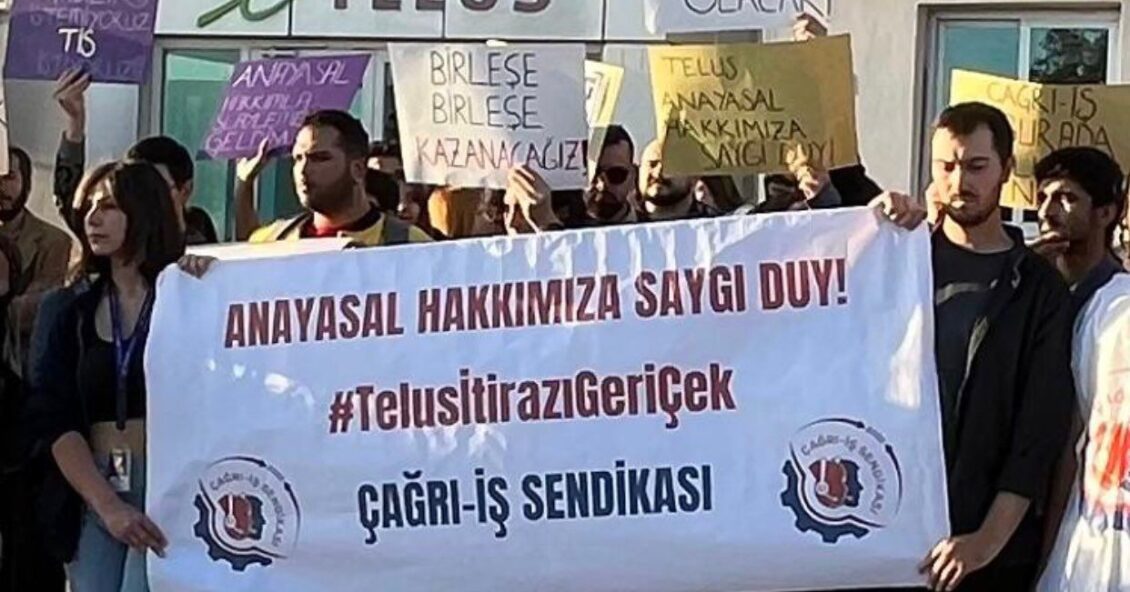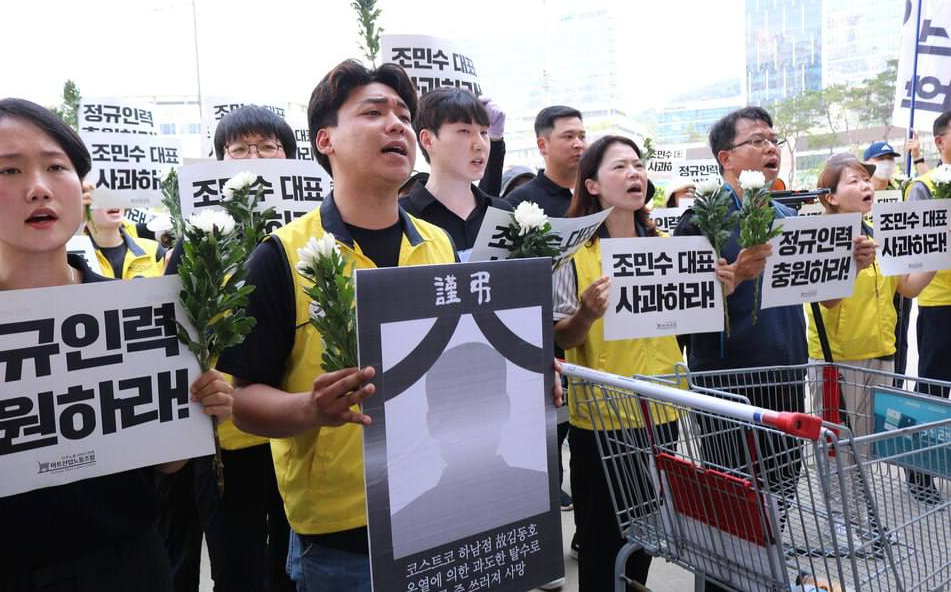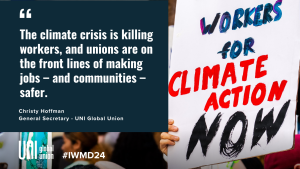This 28 April, International Workers’ Memorial Day (IWMD), the global trade union movement is focusing on technology and workplace health and safety.
UNI is bringing together content moderators from around the world for the first-time ever to Nairobi, Kenya, to build a shared strategy for making their jobs safe, sustainable and union.
Content moderators, who shield billions of social media users from harmful and traumatic material, are exposed to hundreds of videos, images and texts every day depicting extreme violence, sexual abuse, hate speech and other egregious behaviour. Depression, post-traumatic stress disorder, sleeplessness and suicidal thoughts as a result from this work is all too common.
African Tech Workers Rising organizer Sonia Kgomo, a former Facebook content moderator from Kenya, wrote earlier this year in the Guardian:
For two years, I spent up to ten hours a day staring at child abuse, human mutilation, racist attacks and the darkest parts of the internet so you did not have to.
You could not stop if you saw something traumatic. You could not stop for your mental health. You could not stop to go the bathroom. You just could not stop. We were told the client, in our case Facebook, required us to keep going.
Kgomo highlighted not only the disturbing nature of the content but also the intense pace demanded by her employer, the outsourcing firm Sama. Moderators’ performance was closely tracked, often given just seconds to evaluate each piece of troubling content.
Such precise and constant monitoring is increasingly enabled by algorithmic management systems and artificial intelligence. The International Trade Union Confederation (ITUC) is focusing this year’s IWMD on the consequences of digital surveillance and automation for workers’ health as part of their campaign ahead of important discussions at this year’s International Labor Conference.
Across nearly all economic sectors, this technology is squeezing workers to meet inhumane production targets and deteriorating workers’ mental and physical wellbeing with the extreme pressure of constant, real-time micromanagement and automated assessment.
For example, Amazon’s performance monitoring systems make workers feel “stressed, pressured, anxious, like a slave, robot and untrusted,” according to an international study of Amazon employees. Nearly 60 per cent of the over 2000 Amazon worker respondents from eight countries
UNI Global Union General Secretary Christy Hoffman said:
Job titles like ‘content moderator’ and the extreme surveillance workers now endure were unimaginable just a short time ago, but workers organizing for safe jobs and a real say about their conditions is as old as the labour movement itself. Unions have always fought and won protections against technological abuse. With every new form of workplace tech, the urgency grows to make it serve rather than hurt workers.
UNI has compiled many examples of unions pushing back against the expansion of bossware and digital surveillance in its report, Algorithmic Management: Opportunities for Collective Action. Showing yet again that it is union workplaces that are safe workplaces.
International Workers Memorial Day is the day that the trade union movement unites to remember workers at home and across the globe who have paid the ultimate price, those who left for work and never returned, as well as those whose lives have been altered by workplace injury or harm.




